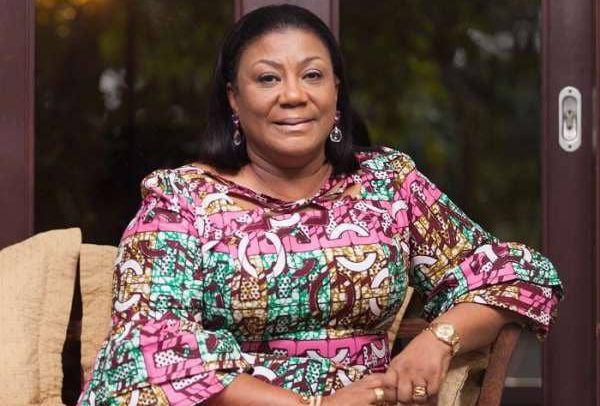The Ghana Health Service (GHS) and the Office of the First Lady have inaugurated a body that will work towards ensuring all childhood cancers are identified early and given the needed treatment for better outcomes.
The body, Childhood Cancer Society of Ghana (CCSG), will work as a multidisciplinary team in collaboration with other stakeholders in the management of children with cancers, including the provision of holistic support for families of affected children.
Its establishment was facilitated by the two main childhood cancer treatment centres; Korle Bu Teaching Hospital (KBTH) and Komfo Anokye Teaching Hospital (KATH).
First Lady, Mrs Rebecca Akufo-Addo, in her address before the inauguration said the health sector is seeing many children succumbing to non-communicable diseases such as cancer. She further noted that chances of children with cancer getting cured was also high in developed countries as compared to developing countries like Ghana.
“Again, we have low diagnosis rate for childhood cancers. This is not a pretty picture. We are also not doing well when it comes to the number of treatment centers and paediatric oncologists. Six centers with only two offering comprehensive services and just five paediatric oncologists, is woefully inadequate for Ghana. This means the majority of our children are unable to access specialist services and most likely die,” she added.
Mrs. Akufo-Addo further indicated that Ghana has been selected by WHO as a focus country to achieve at least 60% survival for children with cancer by 2030 adding that it is expected of policymakers to develop services in line with the National Childhood Cancer Strategy.
“So today, as we inaugurate The Childhood Cancer Society of Ghana, you have a leading role as practitioners and advocates, to ensure our children are able to access effective, quality, lifesaving care anywhere in Ghana. Your vision of ‘Cure for all children affected by cancer in Ghana’ is a charge to make a difference in the outcomes for Ghanaian children,” she said.
The Director-General of the GHS, Dr Patrick Kuma-Aboagye, applauded the initiative, indicating that it would go a long way in improving the national childhood cancer situation.
He said currently the country did not have comprehensive epidemiological data on the magnitude of childhood cancers, but it had been estimated that 1000 children were affected annually with only 30 per cent receiving any form of treatment due to the cost of treatment, insufficient diagnosis ability, among many other factors.
He noted that in the next two years, Ghana will produce eight more paediatric oncologists. “With the postgraduate medical colleges, producing other critical specialists, we are looking forward to more fully comprehensive treatment centers in the near future,” he said.
By Jamila Akweley Okertchiri


